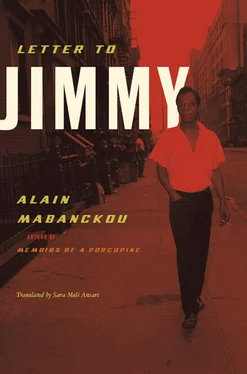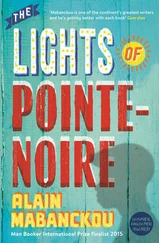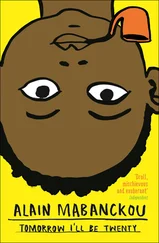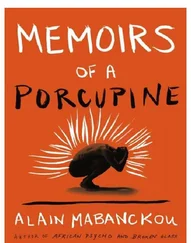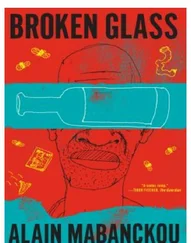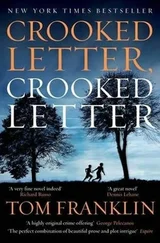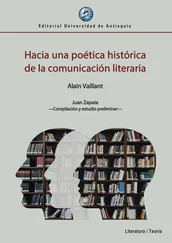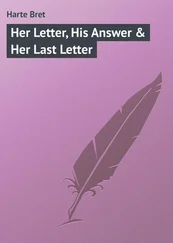•••
I hold in high esteem the independence of the writer, Jimmy, and am weary of “herd-mentality literature.” A writer should always share his own vision of the human condition, even if it runs counter to commonly held, moralizing beliefs.
A variety of African literature known as “child soldier” literature — or as “Rwandan genocide” literature, when it was created more in protest than in an effort to truly understand the tragedies — convinced me definitively that we were not yet free of the vortex of Uncle Tom’s Cabin, and that the sentimentality and moralizing current that runs through some of these works does harm to African literature. If we are not careful, an African author will be able to do nothing but await the next disaster on his continent before starting a book in which he will spend more time denouncing than writing.
People will loudly remind me of our duty to be politically engaged, to tell the tale of Africa’s woes, to publicly accuse those who drag the continent downward. But what is the value of political engagement if it leads to the destruction of the individual? Many hide behind this mask in order to teach us lessons, to impose upon us a vision of the world where there would be the true children of Africa on one side, and, on the other, the ingrates — meaning the latter are considered Europe’s lackeys. By nature I distrust those who brandish banners; they are the same people who clamor for “authenticity,” the very thing that submerged the African continent in tragedy.
In the introduction to her anthology of works from black Africa, the academic Lilyan Kesteloot pointed out “it is in fact preferable to confine oneself to the little world of me than to make a great deal about negro unanimity without believing in it. . The issue of political engagement is decided in the conscience of each individual, and is not an aesthetic criteria. .” 67
Protest, if we broaden its meaning to include political engagement, should transform the outcry, the emotion and the exacerbation, into a timeless, creative act. In this very way, Césaire’s Notebook of a Return to the Native Land will never age a single day. Conversely, I have only to open certain works from the negritude era to notice that they have not withstood the test of time. And if their wrinkles are deep, it is because their authors forgot that protest for protest’s sake will never be a creative act, but only a short-lived bleating. Protest — oh, pardon me, political engagement — must simultaneously gather strength from personal experience and communal destiny. Art cannot escape from being bound by violence. And this is the bond, Jimmy, that extends from the beginnings of your work to the end, as the Cameroonian Simon Njami would illustrate in a biography he would dedicate to you. 68
5. black, bastard, gay and a writer
You brushed off labels like “Negro,” “ghetto boy,” “bastard,” and, more than anything, “faggot.”
If James Campbell, in his biography of you, fights against the latter label in particular — an easy insult for most of your adversaries — it is because he is aware that your homosexuality for you is the expression of your freedom, a way of being yourself, and not the expression of some deviation or, in his terms, of some “genetic ambivalence,” definitions that distort the understanding of any individual. 69
In your day, the contradiction was obvious: on the one hand, your country held up individual freedom to the level of a democratic ideal, but, on the other, sanctioned racial segregation. Consequently, as Dwight A. McBride attests, the ideological confrontation between capitalist and communist factions would alter the discourse on sex, race and the African-American community. 70You would have a voice in this discourse. .
In fact, after welcoming your article “Everybody’s Protest Novel” into its first edition, the journal Zero published another of your articles in the following issue, entitled “Preservation of Innocence.” 71It is a brief text with philosophical leanings that revolves around the notions of normality and abnormality in human nature. The saga of the homosexual, according to your analysis, is that he must always confront the most profound grief: that he is abnormal because he has opted to turn himself away from his original function, that of a procreator, for a relationship bound to sterility. Since homosexuality is as old as the human race, the most suitable attitude would be to consider it as a material component of normality. Sex, with its myths, confronts us with the complexity of our behaviors and our beliefs. You remind us that men and women have imperfection in common, and are indivisible. Because of this, tampering with the nature of one has an impact on the nature of the other. Their absolute separation — man having to comfort himself in his masculinity, and woman assuring her own function as a woman — would destroy each of their souls. Although it is often repeated that women are more gentle, legends insinuate that they may be “mythically and even historically, treacherous.” 72Novels, poetry, theater, and fables have sometimes entertained this paradox, which only personal experience is capable of first clarifying, then blocking you in your tracks. “This is a paradox which experience alone is able to illuminate and this experience is not communicable in any language that we know. The recognition of this complexity is the signal of maturity; it marks the death of the child and the birth of the man.” 73
“Preservation of Innocence” remains the very first text in which you speak explicitly about homosexuality, before continuing to explore this theme in your following works, most notably in your second novel, Giovanni’s Room .
In January 1985, two years before your death, you publish another article, “Freaks and the American Ideal of Manhood,” 74in the famous erotic American magazine, Playboy , founded in 1953 by Hugh Hefner. This monthly periodical welcomes writers from time to time; the world’s leading writers have published here, including Vladimir Nabokov, Ian Fleming, and Margaret Atwood.
In “Freaks and the American Ideal of Manhood,” you examine the notion of masculinity by drawing on a multitude of autobiographical elements. You look at your own experience as a homosexual and try to understand the malicious gaze of the other, in particular the American heterosexual male.
Starting with the idea of androgyny, you argue that there is a woman in every man, and vice versa. As a consequence, “. . love between a man and a woman, or love between any two human beings, would not be possible did we not have available to us the spiritual resources of both sexes.” 75However the American sexual ideal is intimately related to a certain idea of masculinity. It is this ideal that creates, among other things, “. . cowboys and Indians, good guys and bad guys, punks and studs, tough guys and softies, butch and faggot, black and white.” 76The young, American man will therefore develop within this imaginary complex. .
Your first homosexual experiences — even if they are then limited to a few encounters — take place in the bars of Greenwich Village. New York City at the time, according to McBride, attracts men and women who are exploring and expressing their sexual difference. In Greenwich Village, you and several other “faggots” 77endure the jibes of the “moral police”: “There were only about three of us, if I remember correctly, when I first hit those streets, and I was the youngest, the most visible, and the most vulnerable.” 78
At the age of sixteen these bad guys chase you, often under the amused and complicit watch of policemen. This makes you say that it was not the police you feared, but rather the guys who decided that you tarnished the respectability of the neighborhood.
Читать дальше
